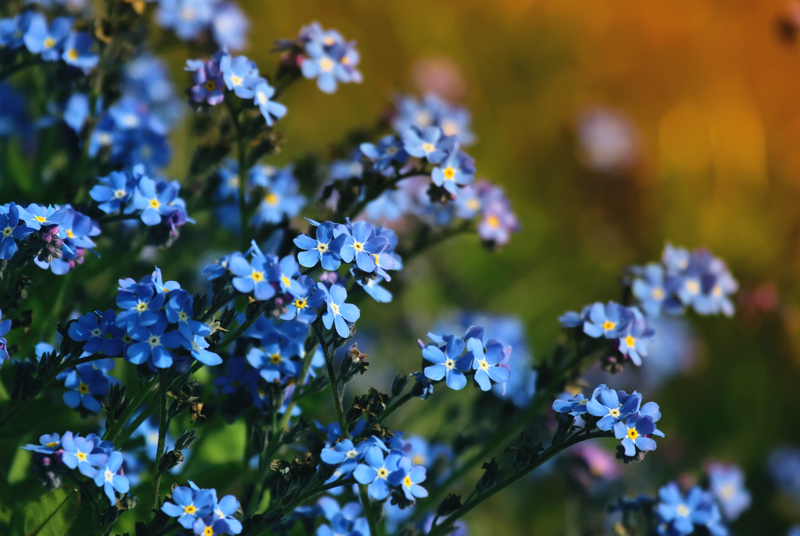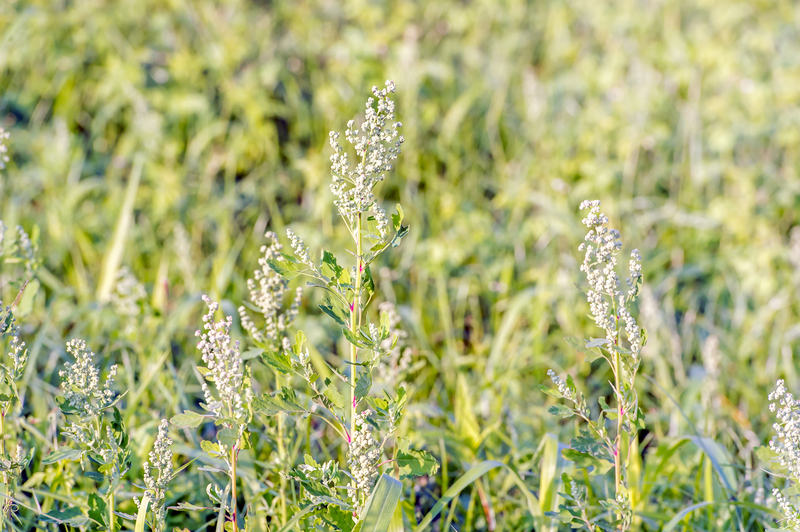Gardening Wisdom: Essential Tips for Weed Control
Posted on 12/09/2025
Gardening Wisdom: Essential Tips for Weed Control
Maintaining a lush, vibrant garden is the dream of every gardening enthusiast. However, weeds pose a constant threat to both the appearance and health of your plants. Understanding effective weed control strategies is vital for any successful garden. This comprehensive guide explores the wisdom of seasoned gardeners by sharing essential tips, expert advice, and innovative techniques for managing weeds. Whether you are a novice or a green-thumbed veteran, mastering these methods will transform your garden into a flourishing sanctuary.
Why Weed Control is Essential in Gardening
Weed management is more than just an aesthetic obligation. Uncontrolled weed growth can:
- Compete with your plants for nutrients, water, and sunlight.
- Attract pests and cause plant diseases.
- Inhibit the growth of vegetables, flowers, and shrubs.
- Reduce crop yields in edible gardens.
- Affect the overall ecosystem and soil health.

Types of Weeds and How to Identify Them
Recognizing the different kinds of weeds in your garden is crucial. Weeds typically fall into three main categories:
- Annual Weeds: These weeds complete their entire life cycle in one season. Examples include chickweed and crabgrass.
- Perennial Weeds: Perennial weeds survive for several years, often regrowing from roots. Common examples are dandelions and bindweed.
- Biennial Weeds: These weeds take two years to complete their life cycle, such as burdock and wild carrot.
Understanding the growth habits of different weeds enables you to apply the right weed control techniques at the appropriate time.
Smart Prevention: Strategies to Stop Weeds Before They Start
The best way to control weeds is to prevent them from taking root in the first place. Here are some proven methods for proactive weed management:
1. Mulching for Weed Suppression
- Organic Mulch: Materials like straw, bark, wood chips, or compost not only suppress weed growth but also enrich the soil.
- Inorganic Mulch: Gravel or landscape fabric is effective in long-term weed prevention, especially in pathways or beds with perennial plants.
Apply a thick layer (2-4 inches) to block sunlight, preventing weed seeds from germinating.
2. Ground Covers and Dense Planting
- Planting ground covers, such as creeping thyme or clover, can form a living mulch and outcompete weeds.
- Densely planting flowers or vegetables reduces open soil where weeds can sprout.
3. Healthy Soil Equals Fewer Weeds
Strong, nutrient-rich soil supports vigorous plant growth, naturally crowding out unwanted weeds. Use compost and regularly test your soil to maintain optimal health.
Manual and Mechanical Weed Control Techniques
1. Hand Pulling
- Hand-pulling is most effective when the soil is moist and weeds are young.
- Always remove the entire root, especially in the case of perennial weeds, to prevent regrowth.
2. Hoeing and Cultivation
- Hoeing the top layer of soil disrupts weed seedlings before they establish deep roots.
- Use a sharp hoe and regularly cultivate between rows for best results.
3. Solarization
Soil solarization involves covering soil with clear plastic sheets during the hottest months, allowing the sun to bake and kill weed seeds and roots.
4. Mowing and String Trimming
- Regularly mow your lawn to prevent weeds like dandelions from seeding and spreading.
- String trimmers can help control weeds along fences and garden edges.
Natural and Organic Weed Control Solutions
Eco-friendly weed management not only protects your plants but also preserves the balance of your garden's ecosystem. Consider these organic weed control solutions:
1. Vinegar and Boiling Water
- White vinegar acts as a natural herbicide on young weeds. Apply directly on leaves, avoiding desirable plants.
- Pouring boiling water over weeds, particularly in cracks and pavement, quickly destroys unwanted growth.
2. Homemade Weed Sprays
- Mix vinegar, salt, and a few drops of dish soap for a potent, non-toxic weed killer.
Warning: Use sparingly near plants as it can damage soil and nearby vegetation.
3. Corn Gluten Meal
- Apply as a pre-emergent weed suppressant to prevent weed seeds from developing roots in lawns and garden beds.
Strategic Use of Herbicides
While natural methods are preferred, sometimes selective or non-selective herbicides can be effective for problematic infestations. Here's how to use them wisely:
- Select the right herbicide: Use products designed for specific weeds or plant environments.
- Apply during optimal weather: Avoid rainy days to prevent runoff and minimize harm to non-target plants.
- Spot treat: Use herbicide only on affected areas.
- Follow safety instructions: Always wear protective gear and adhere to label directions.
Limit chemical use to maintain soil fertility and encourage biodiversity in your garden.
Weed Control Tips for Specific Garden Settings
1. Weed Management in Vegetable Gardens
- Mulch around crops to keep weed seeds from sprouting.
- Practice crop rotation to diminish weed populations.
- Use raised beds for easier maintenance and fewer weeds.
2. Flower Bed Weed Management
- Edge beds to form a physical barrier against creeping weeds.
- Frequent deadheading prevents ornamental weeds like oxalis from spreading.
3. Lawn Weed Prevention
- Maintain thick, healthy grass to crowd out weeds.
- Mow at the highest recommended height for your grass type.
- Feed and aerate your lawn for strong root growth.
4. Container and Patio Gardening Weed Control
- Use fresh, sterile potting soil to avoid weed seeds.
- Regularly check and hand-pull any emerging weeds.
Advanced Weed Control Wisdom: Integrated Weed Management (IWM)
Integrated Weed Management (IWM) combines cultural, mechanical, biological, and chemical methods to provide a balanced, long-term solution. Smart gardeners use IWM to:
- Reduce reliance on any single weed control method.
- Sustain healthy soil and garden ecosystem.
- Minimize weed seed banks and reduce future infestations.
Examples include rotating different crops, alternating hand-pulling with mulching, and occasionally using targeted herbicides while prioritizing organic options. Adopt IWM for the most resilient and productive garden.
Seasonal Weed Control Checklist
Stay ahead of weeds year-round by following a seasonal strategy. Refer to the checklist below for timely, effective control:
- Spring: Mulch beds, apply pre-emergent controls, and remove early sprouts by hand.
- Summer: Maintain mulch, hoe regularly, and spot treat persistent weeds.
- Autumn: Clear out beds, apply final mulch, and inspect for perennial weeds.
- Winter: Plan for the next season; clean and store tools.
Consistency is key: Regular monitoring and maintenance throughout the year keep weed problems manageable.

Frequently Asked Questions About Weed Control
Q: What is the most effective natural weed control?
A: A combination of mulching, dense planting, and manual removal provides a powerful, eco-friendly defense against garden weeds.
Q: Can weeds be controlled without chemicals?
A: Absolutely. Organic methods like mulching, hoeing, and solarization offer effective, sustainable weed prevention and control.
Q: How do I remove deep-rooted perennial weeds?
A: Use a weeding fork or hand dig to get the entire root. Alternatively, solarizing infested areas may eradicate persistent perennials.
Q: Will covering my garden with plastic kill weeds?
A: Yes. Soil solarization with clear plastic during the hottest months can dramatically reduce weed seed banks.
Final Words: Cultivate Weed-Free Gardening Wisdom
Achieving a weed-free garden doesn't require harmful chemicals or backbreaking work. By embracing the essential tips outlined in this guide--from mulching and dense plantings to regular maintenance and integrated weed control strategies--you can enjoy a healthier, more beautiful garden year-round.
Remember, every weed pulled, every mulch laid, and every routine followed brings you closer to your gardening dream. With patience, observation, and the right knowledge, you'll cultivate not just a stunning garden but also the wisdom to keep it thriving for years to come.
For more advanced weed control advice and gardening wisdom, explore trusted horticulture resources or consult local gardening clubs. Share your experiences and learn from fellow gardeners--together, you can conquer even the most stubborn weeds!
- Happy gardening!
- May your blooms outshine the weeds every season.
Latest Posts
Neglect no More: Jumpstarting Your Garden Makeover
Unlock Privacy Secrets with 9 Hedges That Grow Fast
Crafting Serenity: Steps to a Stunning and Practical Herb Garden



